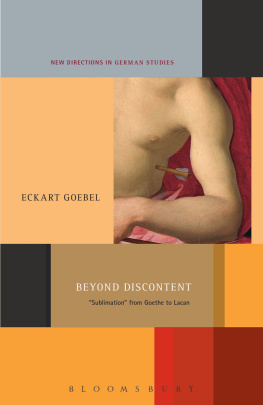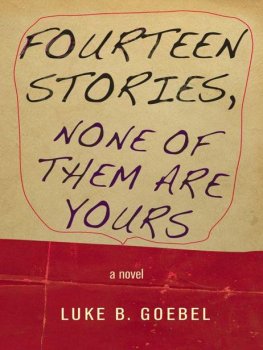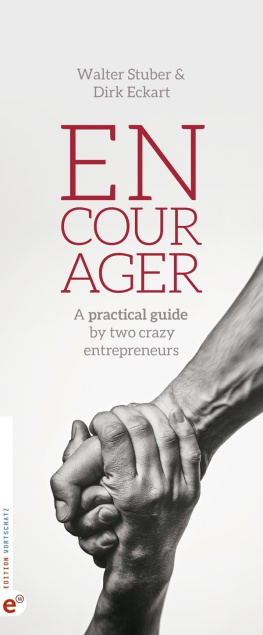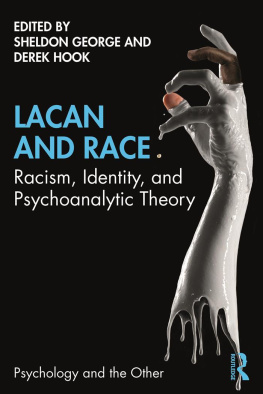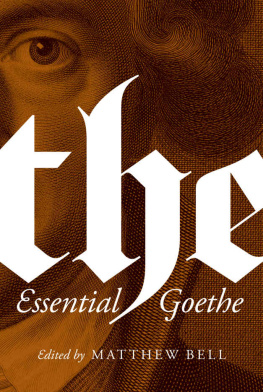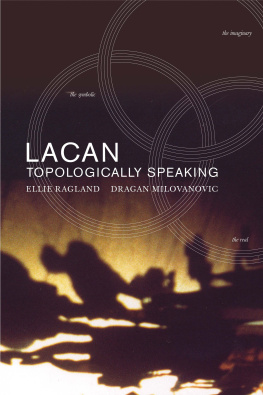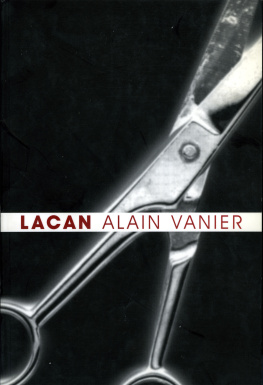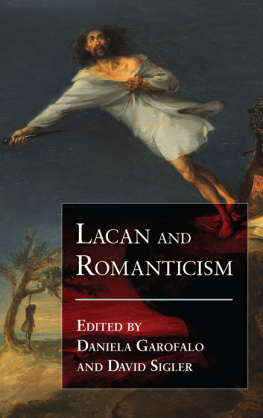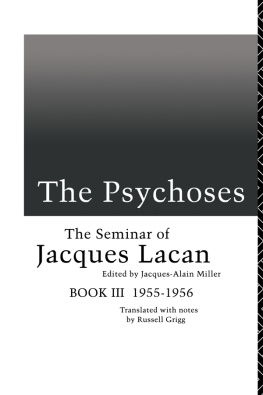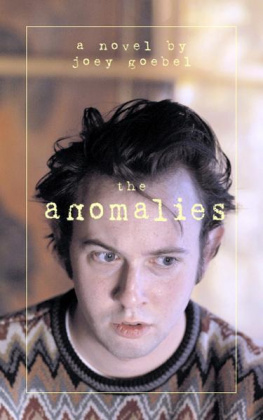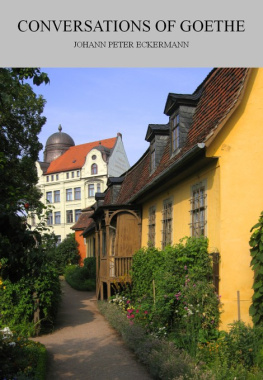Eckart Goebel - Beyond Discontent ‘sublimation’ from Goethe to Lacan
Here you can read online Eckart Goebel - Beyond Discontent ‘sublimation’ from Goethe to Lacan full text of the book (entire story) in english for free. Download pdf and epub, get meaning, cover and reviews about this ebook. year: 2012, publisher: Bloomsbury USA, genre: Science. Description of the work, (preface) as well as reviews are available. Best literature library LitArk.com created for fans of good reading and offers a wide selection of genres:
Romance novel
Science fiction
Adventure
Detective
Science
History
Home and family
Prose
Art
Politics
Computer
Non-fiction
Religion
Business
Children
Humor
Choose a favorite category and find really read worthwhile books. Enjoy immersion in the world of imagination, feel the emotions of the characters or learn something new for yourself, make an fascinating discovery.
- Book:Beyond Discontent ‘sublimation’ from Goethe to Lacan
- Author:
- Publisher:Bloomsbury USA
- Genre:
- Year:2012
- Rating:5 / 5
- Favourites:Add to favourites
- Your mark:
- 100
- 1
- 2
- 3
- 4
- 5
Beyond Discontent ‘sublimation’ from Goethe to Lacan: summary, description and annotation
We offer to read an annotation, description, summary or preface (depends on what the author of the book "Beyond Discontent ‘sublimation’ from Goethe to Lacan" wrote himself). If you haven't found the necessary information about the book — write in the comments, we will try to find it.
Beyond Discontent ‘sublimation’ from Goethe to Lacan — read online for free the complete book (whole text) full work
Below is the text of the book, divided by pages. System saving the place of the last page read, allows you to conveniently read the book "Beyond Discontent ‘sublimation’ from Goethe to Lacan" online for free, without having to search again every time where you left off. Put a bookmark, and you can go to the page where you finished reading at any time.
Font size:
Interval:
Bookmark:
NEW DIRECTIONS IN GERMAN STUDIES
Vol. 4
Series Editor:
Imke Meyer
Editorial Board:
Katherine Arens, Roswitha Burwick, Richard Eldridge, Erika Fischer-Lichte, Catriona MacLeod, Jens Rieckmann,Stephan Schindler, Heidi Schlipphacke, Ulrich Schnherr, Silke-Maria Weineck, David Wellbery, Sabine Wilke, John Zilcosky.
New Directions in German Studies
Volumes in the series:
Improvisation as Art: Conceptual Challenges, Historical Perspectives
by Edgar Landgraf
The German Pcaro and Modernity: Between Underdog and Shape-Shifter
by Bernhard Malkmus
Citation and Precedent: Conjunctions and Disjunctions of German Law and Literature
by Thomas O. Beebee
From Kafka to Sebald: Modernism and Narrative Form
edited by Sabine Wilke (forthcoming)
Viennas Dreams of Europe: Culture and Identity beyond the Nation-State
by Katherine Arens (forthcoming)
Image in Outline: Reading Lou Andreas-Salom
by Gisela Brinker-Gabler (forthcoming)
Thomas Mann in English: A Study in Literary Translation
by David Horton (forthcoming)
Beyond Discontent
Sublimation from Goethe to Lacan
Eckart Goebel
Translated by James C. Wagner

Bloomsbury T&T Clark
An imprint of Bloomsbury Publishing Plc
Imprint previously known as T&T Clark
50 Bedford Square | 1385 Broadway |
www.bloomsbury.com
Eckart Goebel 2012
All rights reserved. No part of this book may be reproduced, stored in a retrieval system, or transmitted, in any form or by any means, electronic, mechanical, photocopying, recording, or otherwise, without the permission of the publishers.
Library of Congress Cataloging-in-Publication Data
Goebel, Eckart.
[Jenseits des Unbehagens. English]
Beyond discontent : sublimation from Goethe to Lacan / Eckart Goebel ; translated by James C. Wagner.
p. cm.
Includes bibliographical references and index.
ISBN 978-1-4411-7833-6 (pbk. : alk. paper) -- ISBN 978-1-4411-1391-7 (hardcover : alk. paper)
1. German literature--History and criticism. 2. Sublimation (Psychology) in literature. 3. Psychoanalysis and literature. 4. Germany--Intellectual life--History. I. Wagner, James C. II. Title.
BF175.5.S92G6313 2012
830.9353--dc23
2012007350
ISBN: 978-1-4411-8112-1
Contents
The idea for this book dates back to a graduate seminar I co-taught with Ulrich Baer at New York University in Fall 2005 on Sublimation & Desire, and I would like to thank Uli and our graduate students for this wonderful semester, which was my first at NYU. While Ulis further research resulted in his seminal monograph on Rainer Maria Rilke ( Das Rilke-Alphabet , Frankfurt am Main: Suhrkamp, 2006), it took me quite a while to come to terms with the problem of sublimation, although Rilke was, as it were, already taken care of.
In Spring 2008 I held a lecture series for undergraduate students at NYU, again under the title Sublimation & Desire. There I presented a number of key texts of the European tradition from the scriptures and Greek antiquity through the twentieth century. Although Plato, Luther and Hobbes found their way into the present publication, I ultimately decided to focus primarily on Sigmund Freud, on some of his direct forerunners (Goethe, Schopenhauer and, most importantly, Nietzsche), and on some of his most compelling readers (Thomas Mann, Adorno, Lacan).
There remains a lot to be done with the concept of sublimation both within and far beyond literary studies. The term does not only imply the general and thus quite intimidating question of what civilization actually is. In Freuds case, sublimation can be deciphered as the name of theoria in the twentieth century; and from this follows that sublimation marks the abysmal interface of philosophy and psychoanalysis. I freely admit that I refrained from jumping into that abyss.
To my mind, further investigation into sublimation requires interdisciplinary research, co-operation with psychology, gender studies and advanced neural sciences, where the old problem returns as affect-management. In addition, further research may seek cooperation with experts from art history and also from religious studies to discuss appropriately the overwhelming global heritage we have in the numerous traditions of contemplation and meditation. This became clear to me once more in Spring 2011 when I was meant to give a lecture at an interdisciplinary symposium on Buddhism in Gttingen. There again I decided to stick to my field of expertise and gave a talk on, nota bene , Hermann Hesse. The idea of The Glass Bead Game ushers towards these academic and spiritual challenges.
***
I would like to thank my friends and colleagues from the Department of German at NYU for lively discussions in the hallways, for their support at various levels, and for opening so many dossiers: Avital Ronell, Paul Fleming and Elke Siegel (now Cornell), Paul North (now Yale), John T. Hamilton (now Harvard), Friedrich Ulfers, Andrea Dortmann and Robert Cohen. I would also like to thank our distinguished visiting professors, especially Vivian Liska, Elisabeth Bronfen, Sigrid Weigel, Werner Hamacher and Laurence Rickels for their valuable advice and input.
Writing a book while chairing a pretty exciting department is not the easiest thing to do. So I want to give cordial thanks to the administrators of the department, Lindsay OConnor and Harriet Asase, for all their help and for their patience. And I would like to thank Libby Garland and Christopher Leake for the time off in Manhattan.
Since parts of the book were written during my summers in Berlin, I also want to thank my friends over there: Mara Delius, Caroline Gille, Hella Tiedemann, Achim Geisenhanslke, Gregor Gumpert, Hans-Christian v. Herrmann, Martin v. Koppenfels, and Martin Steffen.
The original German version of Beyond Discontent was published in 2009 by transcript verlag (Bielefeld) under the title Jenseits des Unbehagens . A short German version of the Goethe chapter appeared in the United States in 2008 in Monatshefte (Vol. 100, Nr. 4, pp. 46188), and parts of the Adorno chapter were published in a different English version in Cultural Critique (Vol. 70, pp. 15876). I want to thank the publishers for their permission to take advantage of this material for the present book.
After almost seven years in the United States, I am fully aware of the challenges German Studies is facing in this country. Against this backdrop it is admirable to see that the prestigious Continuum Press has decided to launch the book series New Directions in German Studies to help improve the situation, and I am grateful to the members of the editorial board and to editor Haaris Naqvi for accepting my book.
Finally I want to thank in a separate paragraph my translator James C. Wagner, currently a PhD student in our department, for the stunning job he did. Working with Jim was a wonderful and lasting intellectual experience. I highly benefited from our numerous discussions of linguistic details, especially when comparing different translations of the authors I deal with in my book. In our debates, Jim strongly reminded me of the reasons why I have left the German-speaking world again and again since I was a student. Learning in detail about international perspectives on the German tradition is crucial for Germans and for German Studies. In Germany, one can be inclined to forget that the reading of texts in ones native tongue is always the translation of an alleged original text, which, since the text requires reading to become what it is, is already a difference from itself, and thus on the move.
Next pageFont size:
Interval:
Bookmark:
Similar books «Beyond Discontent ‘sublimation’ from Goethe to Lacan»
Look at similar books to Beyond Discontent ‘sublimation’ from Goethe to Lacan. We have selected literature similar in name and meaning in the hope of providing readers with more options to find new, interesting, not yet read works.
Discussion, reviews of the book Beyond Discontent ‘sublimation’ from Goethe to Lacan and just readers' own opinions. Leave your comments, write what you think about the work, its meaning or the main characters. Specify what exactly you liked and what you didn't like, and why you think so.

